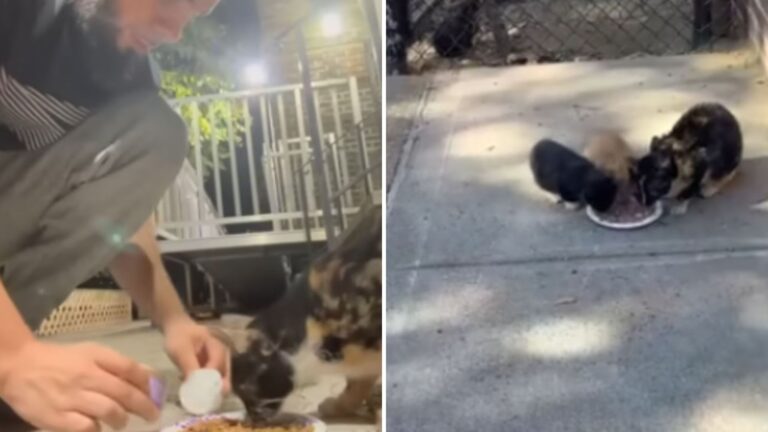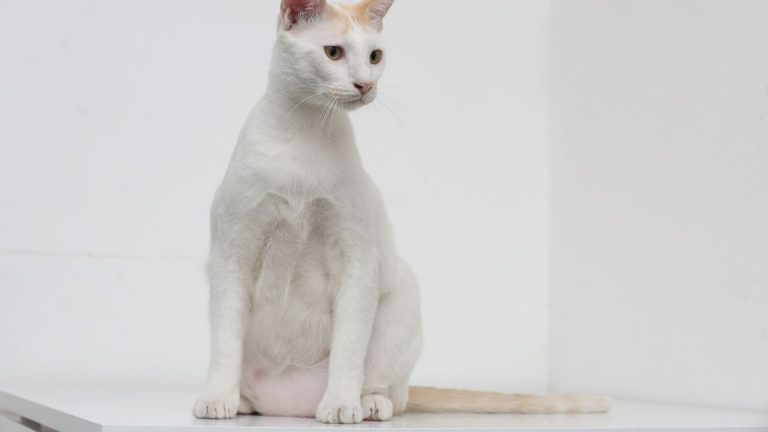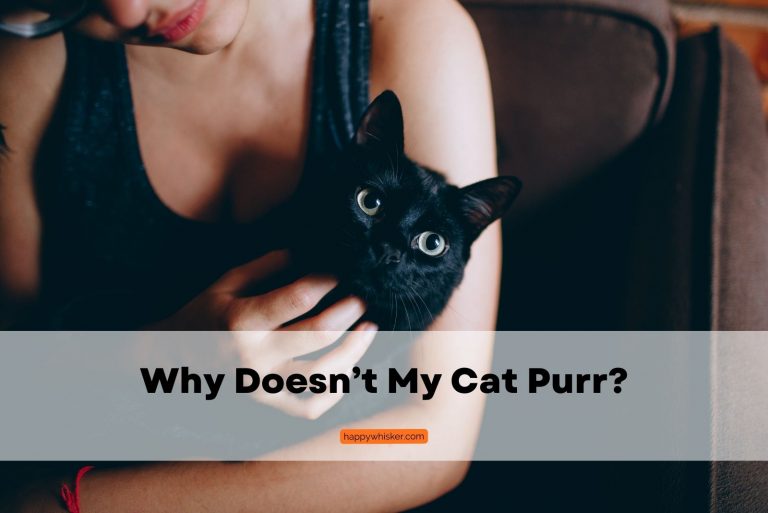Why Do Cats Chirp? 3 Reasons You’ll Find Fascinating
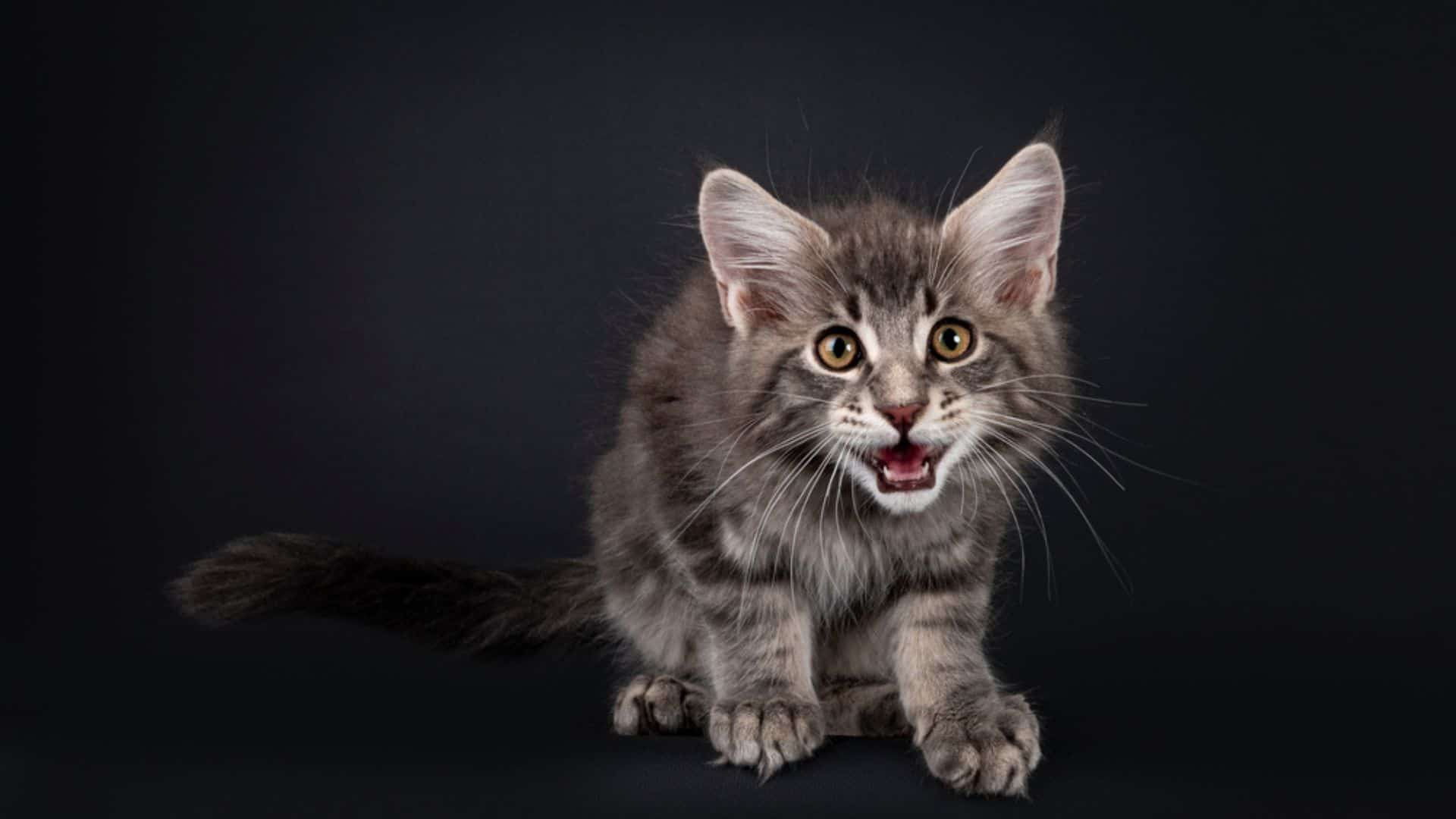
Do you think the meows, chirps, yowls, purrs, and other cat noises your cat makes are just random noises? They sure aren’t!
Although some vocalizations are more frequent than others, they all have one thing in common – they’re some kind of kitty language!
If you’ve noticed your cat chirping while looking out the window, you might be wondering Why do cats chirp? Is this normal?
In this article, I will go over what chirping is, the three reasons cats do it, how it’s different from chattering and much more, so make sure to read on!
Why Do Cats Chirp? 3 Fascinating Reasons
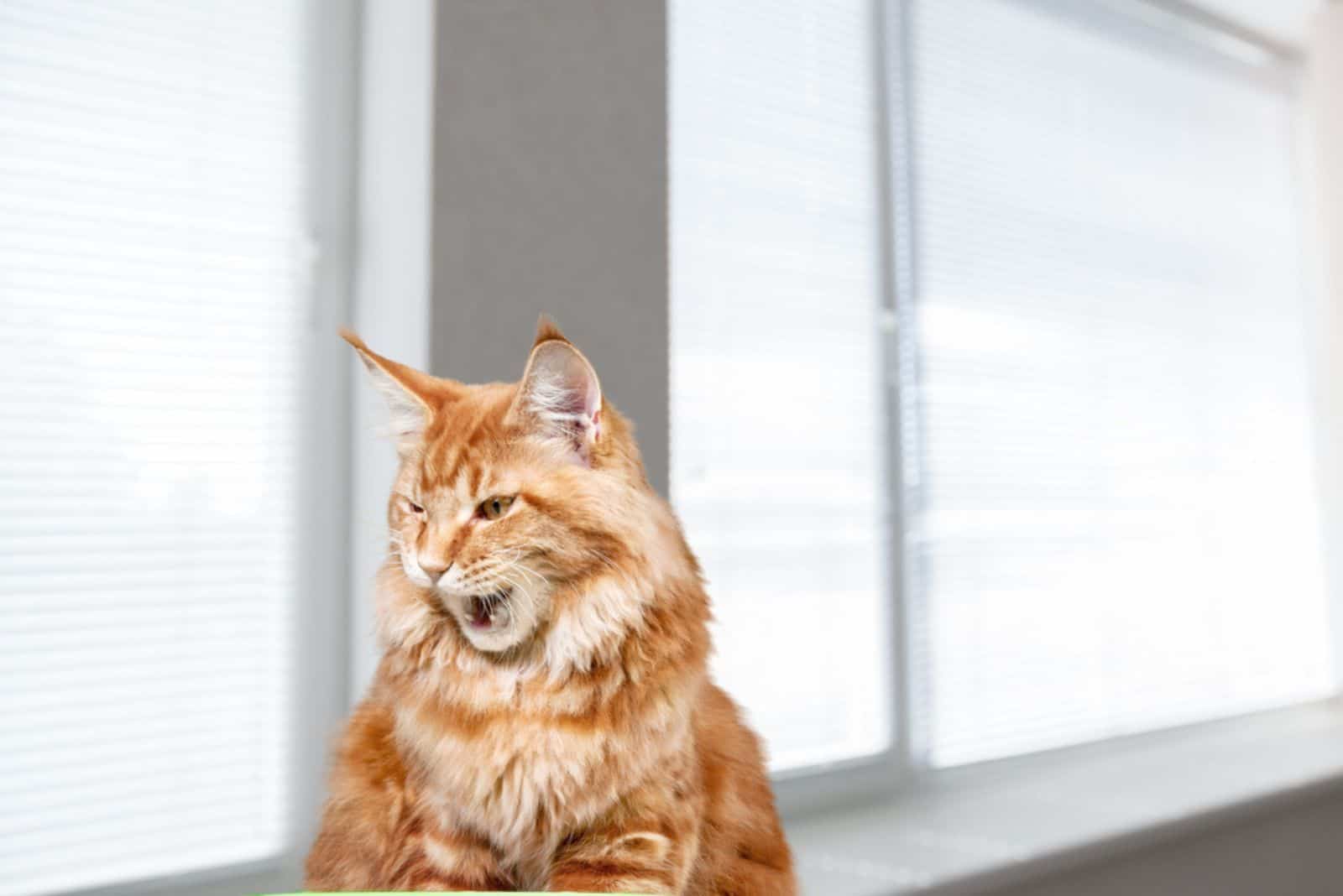
Mother cats originally used chirping to instruct their kittens to pay attention and follow her. However, kittens seem to adopt that cat sound and use it when they grow up. So, why do cats chirp? Let’s explain!
1. It’s Their Instinct
Cats instinctively chirp, and many do so in anticipation of catching birds. The explanation is that their adrenaline levels spike when they spot possible prey.
When a cat is looking at birds (or any other prey animal), its natural hunting instincts kick in. You might notice your cat’s body language changes;
• pupils widely dilated
• stiffened body, ready to pounce at any minute
• tails swishing slowly from side to side
• ears pointed up
• arched back
Apart from the change in body language, you’re likely to notice your cat starting to:
• chatter
• chirrup (or chirp)
You’re most likely to hear your felines chirp when they’re at the window, looking at the birds in the yard. And as you already know, small birds are natural prey for cats.
Often we forget our indoor cats are very efficient predators and that they have not forgotten about their wild cat ancestry, even though they’ve been domesticated for a long time!
2. Frustration
Most domestic cats know they cannot just leap through the window and capture the bird. Because they can see their prey but cannot catch it, they chirp in frustration and displeasure.
Your cat could have an adrenaline surge at the sight of the prey, which in the wild would flood their system and give them a burst of energy for pouncing.
However, your indoor cat can do nothing about it, and they know it, so they resort to chirping.
The longer the feline stares at a bird it cannot get a hold of, the more the cat’s chirping increases. Sometimes, frustration in cats can become an issue, which I will cover in a minute.
Chirping can be observed even without seeing real-life prey, but rather a toy that looks like cat prey, such as a mouse on a string. Therefore, you may hear chirping during play sessions with cat toys.
3. Getting Your Attention
You might be surprised to learn that cats sometimes use chirps to greet other cats and their owners, as well as a way to get someone’s attention.
A chirp is essentially a loud “Hello!” directed at someone.
It’s hypothesized that the development of cat chirping began when cats were still kittens. One theory holds that a mother cat will chirp to lure her kittens to follow her.
Additionally, it is said that a kitten can use cat chirping to draw the mother cat’s attention. Some kittens retain this behavior and use it as adults too!
Your cat could chirp to get your attention or persuade you to look at something it feels is important (such as an empty cat food bowl!)
Cats can also chirp when they’re excited about something. If you hear your cat make these charming noises while you toss her feather toy around, it’s probably simply because she’s thrilled to play with you.
Wait A Minute, What Exactly Is Chirping?
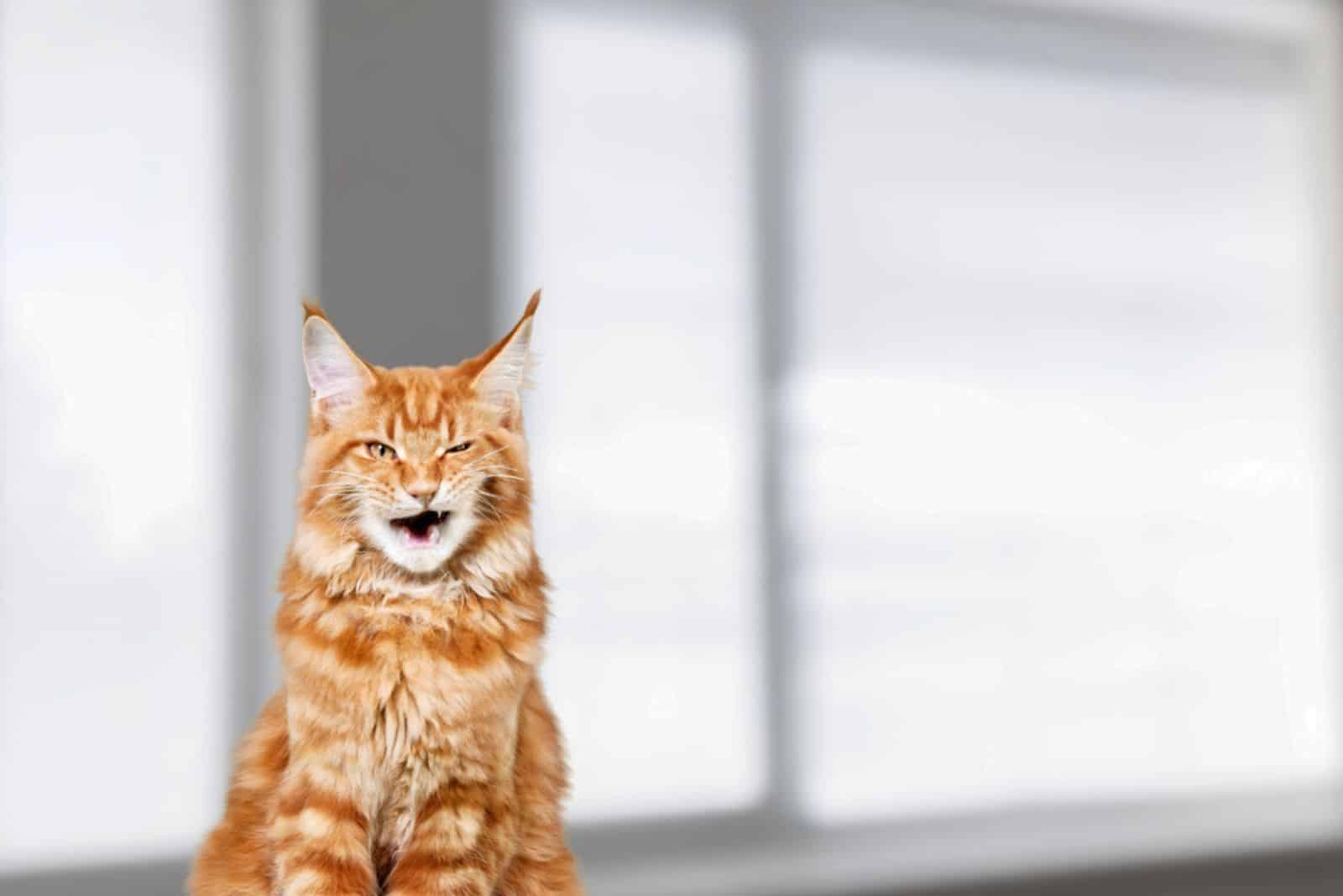
Everyone knows what a meow and a purr are, but not many people are familiar with a chirp. This is completely understandable, as it’s not a sound cats make very often.
The cat chirp often referred to as a chirrup or a trill, is one of the more pleasant sounds cats make. It’s characterized as a short, high-pitched sound a cat may produce only once or in a series.
A cat chirp has a musical undertone and is almost a bird-like sound. It’s produced when a cat pushes air across the vocal cords while keeping its mouth closed.
The chattering of the jaw usually accompanies the chirping sound, so chirping and chattering are frequently used synonymously, but they’re, in fact, two different things. I will go into more detail about the differences between the two later.
Note that a cat chirping is normal behavior and is no cause for concern, nor does it need to be discouraged.
If you’ve never seen a cat chirping, check out this video (extra tip: if you’re impatient, skip to 0:20)!
Do All Cats Chirp?
Yes, all cats chirp. Chirps can be considered a normal part of “kitty language,” alongside meows, purrs, growls, yowls, and many other cat sounds!
Cats of any age and any breed can make it. However, even though all cats can chirp, it doesn’t mean they will.
Some cat owners might never have heard their felines chirp! However, this is not a cause for concern – some cats are less vocal than others.
Is A Cat Happy When It Chirps?
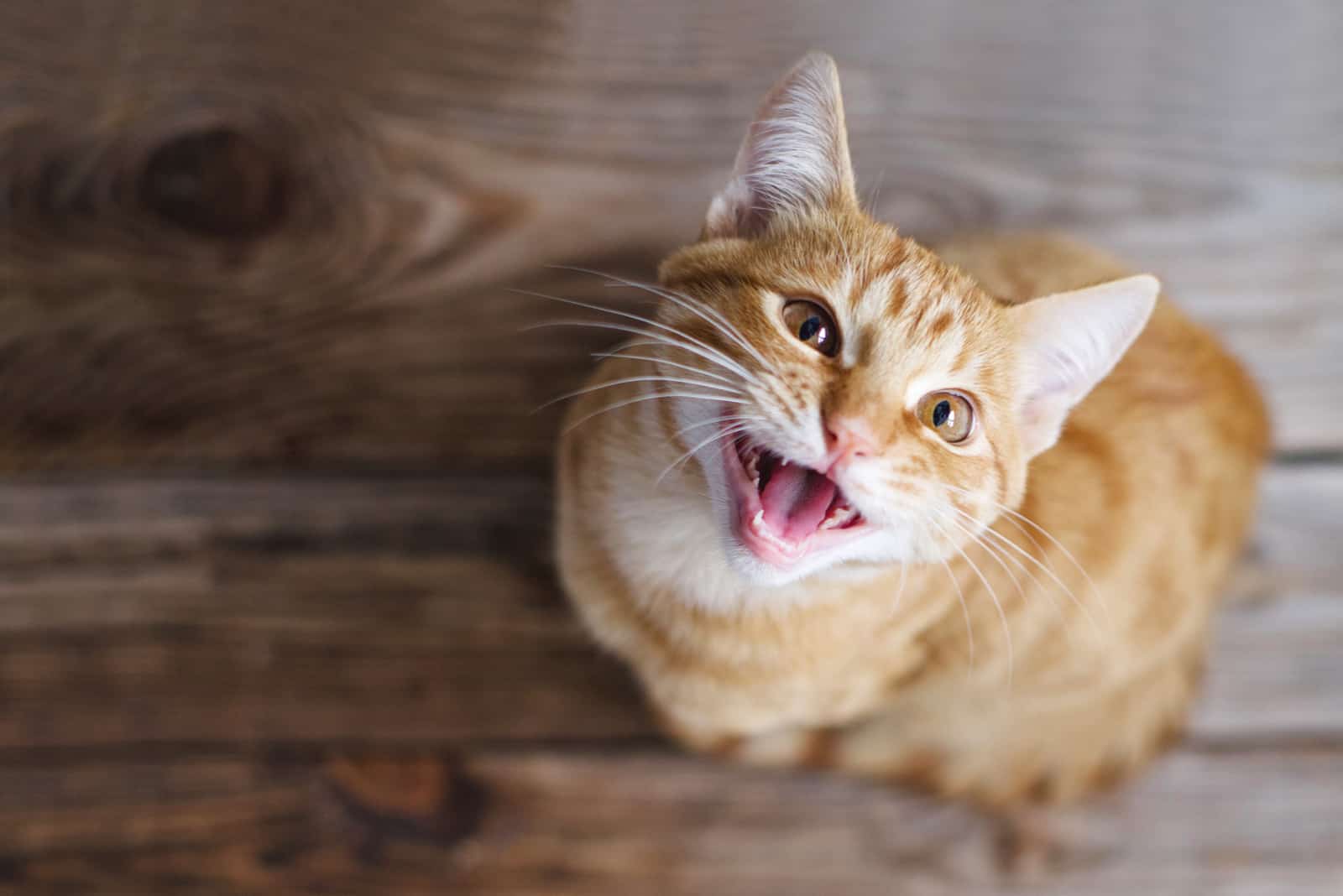
You can say that a chirping cat is a happy cat! Just think of why cats chirp – when they’re anticipating a hunt, greeting a human, or trying to get their attention.
In these moments, cats get enthusiastic, and I guess you can say they are happy about the thought of hunting or at the sight of their owner!
I must note that cats chirp mostly when anticipating a hunt. I’ve fostered many cats and never had a cat greet me with a chirp. However, some cat parents report their cat’s “hello” is a chirp, so I will trust their words.
More reliable signs of happiness are cat meowing, purring, kneading, rubbing against your leg, sitting in your lap, and cuddling with you.
Apart from these cute signs that a cat is happy; other signs are being in good health, using the litter box properly, and not displaying any problematic cat behaviors!
Chirping Vs. Chattering – What’s The Difference Between The Two?
If you look up chirping and chattering online, you’ll most likely see that the two are used synonymously. Although the two are similar, they are not the same.
Chattering is a sound made by a cat opening and closing its jaw quickly. In fact, chattering does not involve the use of the voice box – it’s a simple jaw motion that creates the characteristic sound.
Chirping is a high-pitched sound cats make, and many would agree that it’s a somewhat bird-like sound.
A trait chirping and chattering have in common is that they’re both triggered by the sight of prey, most notably, prey the cat cannot get to.
Although they’re different, chatter and chirping can occur at the same time! Most of the time, when a cat is looking at prey outside the window, it chatters and chips simultaneously. Because of this, many people use chattering and chirping synonymously.
Why Do Some Cats Chirp And Others Don’t?
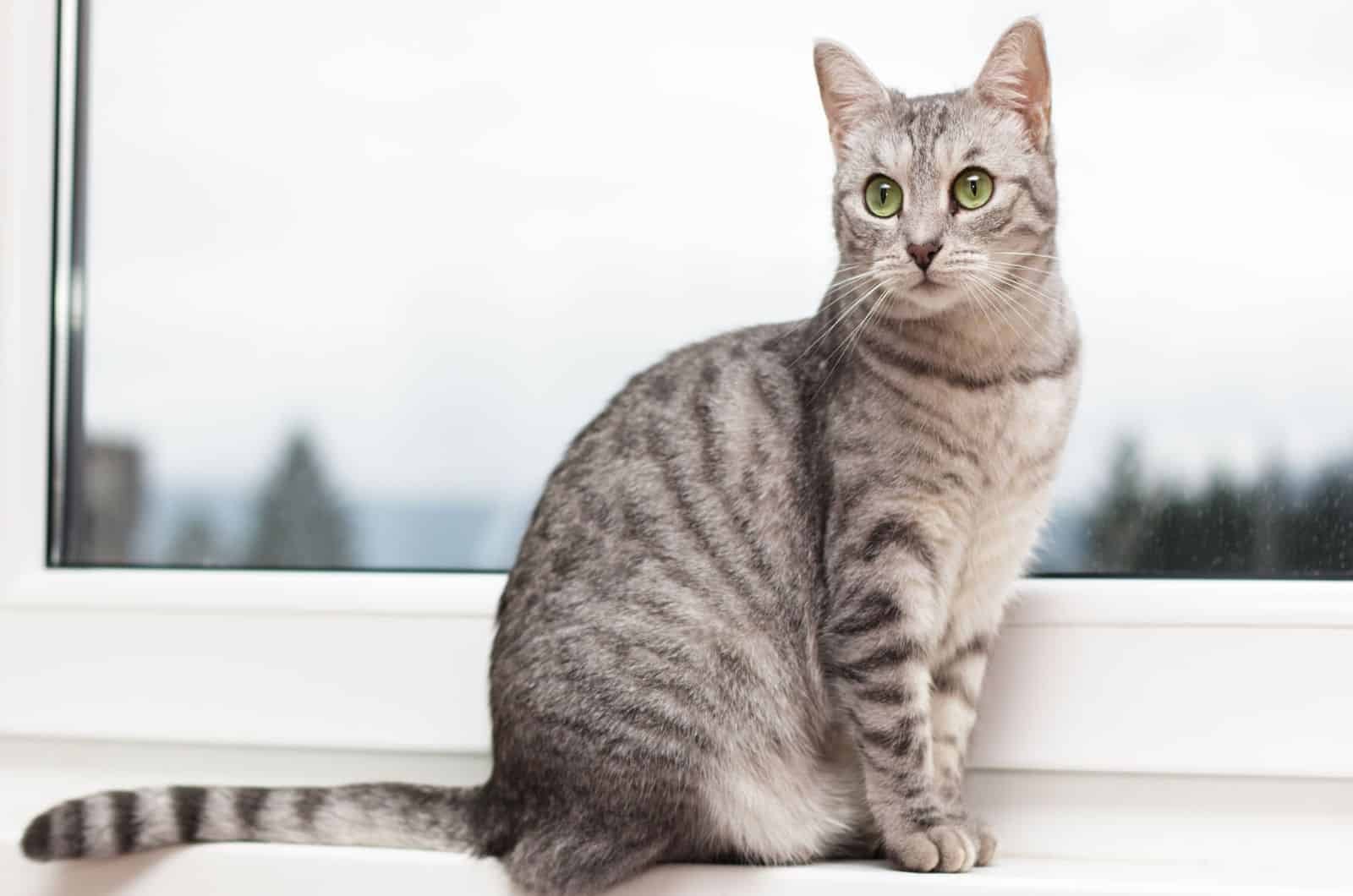
If you’re a pet parent to multiple kitties, you might notice one cat chirping while the other doesn’t. Why may this be? How come some cats vocalize this way while others don’t?
Luckily, there is nothing to be worried about! Not all cats chirp, and that’s perfectly normal.
Whether a cat will chirp or not mainly depends on the cat’s personality.
Chirping is more likely to come from more lively and outgoing cats. On the other hand, if your cat is naturally timid, you could notice that they don’t chirp as much since it may be more difficult for them to articulate their emotions.
Does Cat Breed Matter?
Since cats’ personalities depend partly on the cat’s breed, you may notice cats of certain breeds chirping (and vocalizing in general) more than others.
For instance, cats with Siamese, Scottish Fold, or Maine Coon blood tend to chatter more.
The conclusion is: While timid or reserved cats may not produce this sound as frequently or at all, more friendly and attention-seeking cats are likely to do it more frequently.
Do Cats Chirp At Each Other?
Cats produce the chirping sound by forcing air through their vocal cords while keeping their jaws closed to prevent air from escaping. Cats learned this sound from their moms, not people or other animals.
Mama cats make this noise to draw their young kittens’ attention or urge them to follow them. Cats will utilize this sound when they are older, either with you, other people, or other cats.
However, it’s not likely you’ll see cats chirping at each other as a way of communication. Purring, hissing, and yowling are the most commonly used cat vocalizations in cat-to-cat communication.
In fact, cats don’t even talk to each other that much. Cats rely more on body language rather than “talking”.
Although they don’t talk much to one another, cats have learned that speaking is the greatest method to interact with their owners! Did you know cats meow only at people and not among each other? How interesting!
Why Do Cats Chirp At Me?

As I’ve mentioned, a mother cat instructs her young to follow her by chirping at them. Essentially, it’s a way for a cat to grab the kittens’ attention and get them to go wherever she goes. Grown-up cats do the same!
Some cats decide to apply the technique they saw in their kittenhood when they’ve grown up. Some cat owners report their cats chirping at them to get their attention, especially when the cat wants to be fed.
Cats sometimes use chirping as a greeting technique, so if your kitty is chirping at you, it’s probably just saying, “Hello!”.
When you get home, and your kitty greets you with its chirping noise, acknowledge the greeting and pet your furry friend in return!
How Do I Make My Cat Chirp?
Although there is absolutely no need to worry about your non-chirping cat, you might be interested in hearing your kitty chirp.
I must admit, hearing your furry friends’ chirps for the first time sounds pretty darn adorable. So, how do you make it happen?
It would be best to put your cat in an environment where chirping usually happens.
That means you can place your cat near the window and let it look at the birds outside. You can even set the cat tree or cat perch near a window so your cat has a nice view.
To draw birds to the area, remember to set a bird feeder beside your cat’s favorite window. Just bear in mind to keep the window shut, as your cat might be brave enough to jump from the window to get the bird!
Then simply watch to see if your cat begins chirping. There is nothing else you can do. It might happen or it might not; either way, the most important thing is that your kitty is healthy and safe, whether it chirps or not!
Can Excessive Chirping Become An Issue?
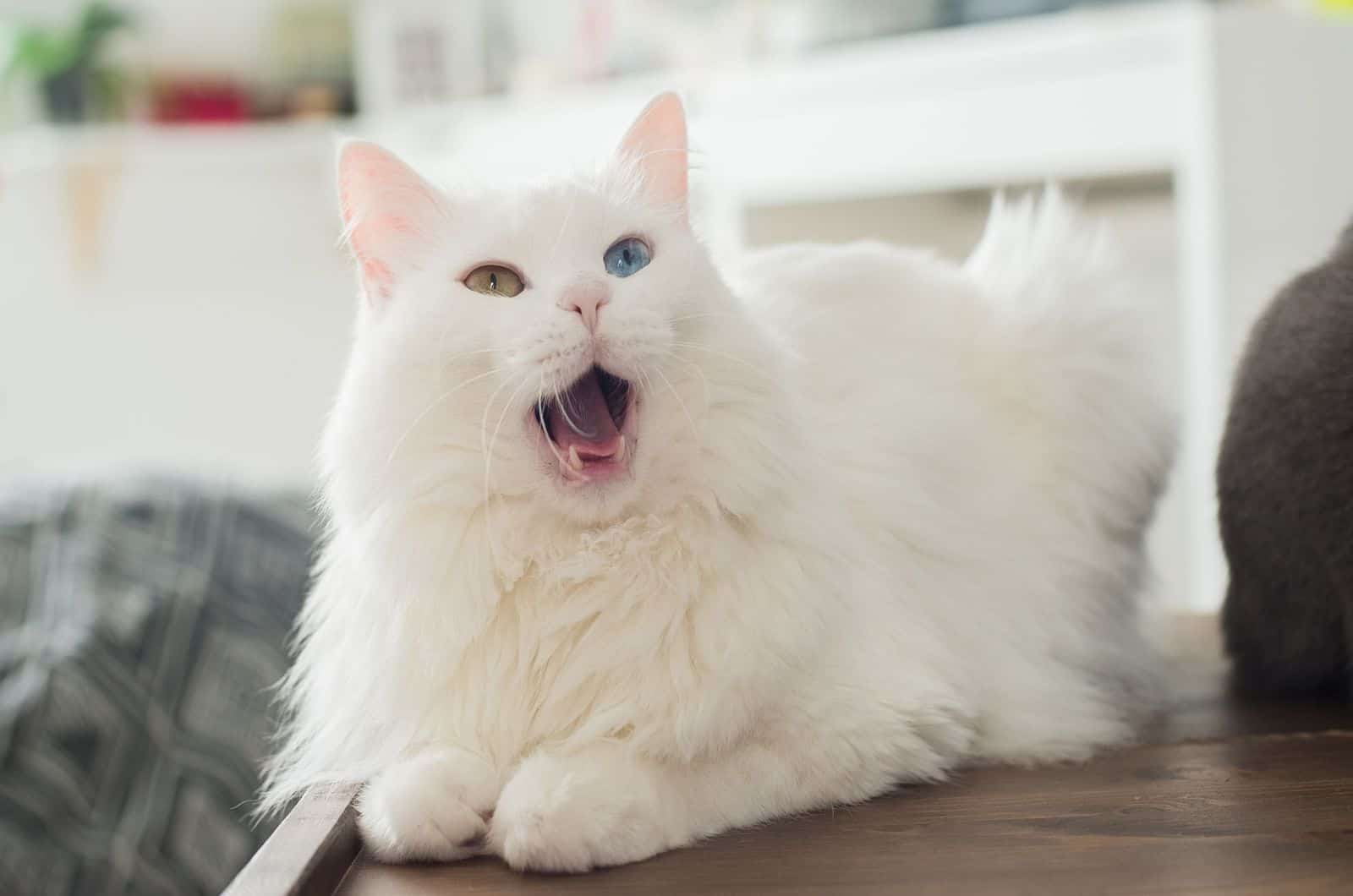
If your cat is somewhat obsessed with watching birds (or any other prey animal) outside the window, that might be a slight cause for concern.
Some cats watch birds outside purely for entertainment, but some do it only due to their natural hunting instinct. Cats that do so can get overly frustrated due to being unable to get hold of the prey.
That can lead to redirected aggression, when a cat directs its aggression towards other things, not the actual stimulus.
That would mean that a cat whose initial aggression was towards the bird is redirected at, for example, you or other pets in the home.
What Can You Do About It?
If you notice your cat is overly-frustrated and impatient, to the point that it displays aggressive cat behavior, there are ways to deal with this issue.
Cat behaviorists suggest you find ways to stimulate your cat physically and mentally. Why? This way, your cat can release some of that built-up energy and frustration from being unable to actually hunt the prey.
1. Engage Your Cat In A “Hunting Playdate”
You can engage your cat in playdates that mimic the hunt, such as playing with a mouse on a string. In that way, a cat can “hunt” the prey and release all the built-up frustration and energy without actually leaving the house and hunting the animal.
2. Get Your Cat Puzzle Games
When it comes to mental stimulation, puzzle games are a great option. Puzzle games require a cat to solve some type of problem, and if they’re successful, the reward is catching the prey or real food for some toys!
3. Go Outside With Your Cat
Another way to get your cat to release some built-up frustration and energy is to allow it to go outside. Of course, only if a fence encloses your yard. If not, you can take some time to build your own catio or buy one (but they tend to be a bit expensive).
A catio is a large, fence-enclosed space outside that your cat can safely be in, and you won’t need to worry about your pet escaping! Some cats love the outdoors, getting fresh air and sunshine, which can help them relax.
If your cat is harness and leash trained, go for a walk; make sure to have an escape-proof, high-quality harness, as you surely don’t want to be running around your neighborhood looking for your feline.
Final Thoughts
Now you know why do cats chirp! I find this repetitive, bird-like cat sound pretty adorable, do you?
I had one foster cat who used to chirp every day whenever she saw a bird through the window! Other cats sometimes joined in but weren’t as persistent as Jack. I must say, I do miss hearing him chirp and chatter!
I hope this article has helped you better understand chirping as a type of cat vocalization. Understanding what cat sounds mean is a great way to learn more about your feline, so make sure to learn what other cat sounds mean as well!
Related Articles:
Why Do Cats Vibrate Their Tails? Understanding Your Cat
Why Do Cats Tails Puff Up? 7 Reasons That Might Surprise You



